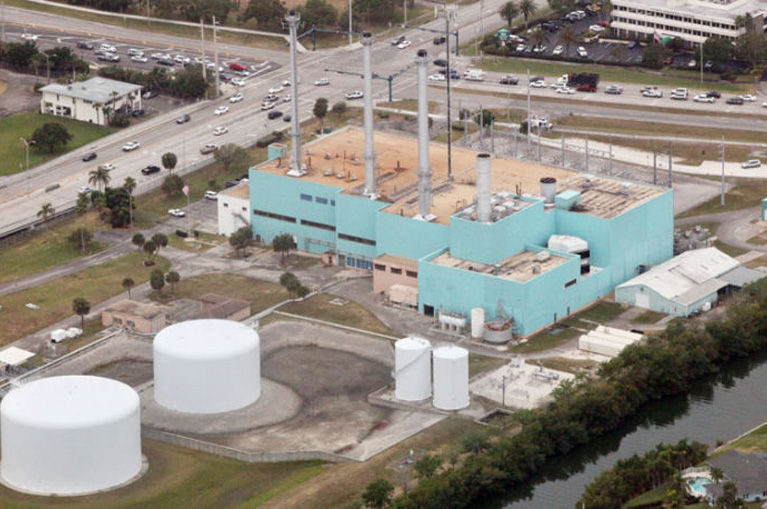
Indian River Shores Mayor Brian Barefoot last week called Vero Beach Mayor Jay Kramer, Councilman Dick Winger and Councilman Randy Old “the committee of no” for failing to accept Florida Power & Light’s $30 million offer to buy the Shores part of Vero’s electric system.
During a town hall meeting focused on Indian River Shores’ efforts to escape the Vero electric service territory, Barefoot urged residents to support Laura Moss, Lange Sykes and Norman Wells in the November election for Vero Beach City Council.
With a more amenable Vero Beach City Council, Barefoot said, the FPL deal could be resuscitated, put to a straight up or down vote and approved, ending the years’ long legal battles between the city and the town.
He said Vero residents and officials just need to be convinced of the good an influx of $30 million – $27 million from FPL and $3 million over three years’ time from Shores residents in the form of a surcharge – could do for a city drowning in pension debt.
“It’s all politics, it’s not economics,” Barefoot said. “If it was economics, this would have been done a while ago.”
Moss, Sykes and Wells were present, listening to Barefoot in the Shores Community Center with 35 other people gathered to hear Shores’ attorney Bruce May summarize the Town’s legal arguments and lay out some possibilities for it to pursue.
May reiterated the arguments he’s made in venues from Vero all the way to Tallahassee – that the Town has a fundamental say over whether another municipality is allowed to do business within town borders.
He said Shores residents are disenfranchised because they cannot vote for Vero officials who set the high electric rates they must pay and in effect tax them without representation, transferring electric service payments into Vero’s general fund.
Rep. Debbie Mayfield, who will likely return to Tallahassee as a member of the Florida Senate, says the cards are stacked against the outside customers and have been as long as she and her late husband Stan before her have been working to rectify the inequity.
“The Florida Municipal Power Agency has the ear of the PSC staff,” Mayfield said.
The FMPA has a vested interest in keeping every outside customer under the grips of the mother utility, as roughly one-third of the FMPA member cities’ ratepayers statewide live outside the city limits of the utility that sells them power. Vero is just the biggest offender with nearly two-thirds of its revenue stream flowing in from beyond the city limits.
Mayfield has enlisted the help of Sen. Jack Latvala, a powerful lawmaker from Clearwater who chairs some key appropriations committees and has vowed to act as a friend of the Shores when these utility and home rule issues come up.
The Town’s 30-year electric franchise agreement with Vero is set to expire two days prior to the Nov. 8 election, but the PSC has already denied the Shores’ request to carve the Town out of Vero’s service territory and allow the Town’s 3,000 electric customers now served by Vero to join their neighbors who pay the lowest electric rates in the state of Florida.
Currently, Vero’s rates are more than 30 percent higher than those charged by FPL for the same power.
Twenty percent of the Town north of Old Winter Beach Road – which was annexed after the original agreement with Vero Electric – is already on the FPL system. May alleges this schism of the Town, once the franchise agreement expires, constitutes “changed circumstances,” which Florida case law establishes as grounds for the PSC to amend Vero’s territory.
If Vero, which May describes as an unchecked monopoly, is permitted to take actions that in the Shores’ view break the law, then the only remedy might be in federal court with an antitrust lawsuit. The Town can also appeal the PSC’s decision from last week, when it becomes final on or about Oct. 24, to the Florida Supreme Court.
The Shores Town Council last Thursday voted 5-0 to authorize its attorneys to review the PSC’s ruling and take whatever next steps are warranted in state court. Should the Shores decide an antitrust suit is the way to go, the balance of Vero’s 61 percent outside customers in the unincorporated county and the Indian River Board of County Commissioners who represents them would presumably be encouraged to join the fight and give the case strength in numbers.
Outside of court remedies, the Shores best hope is a new Vero City Council that will take FPL’s $30 million offer and run.



